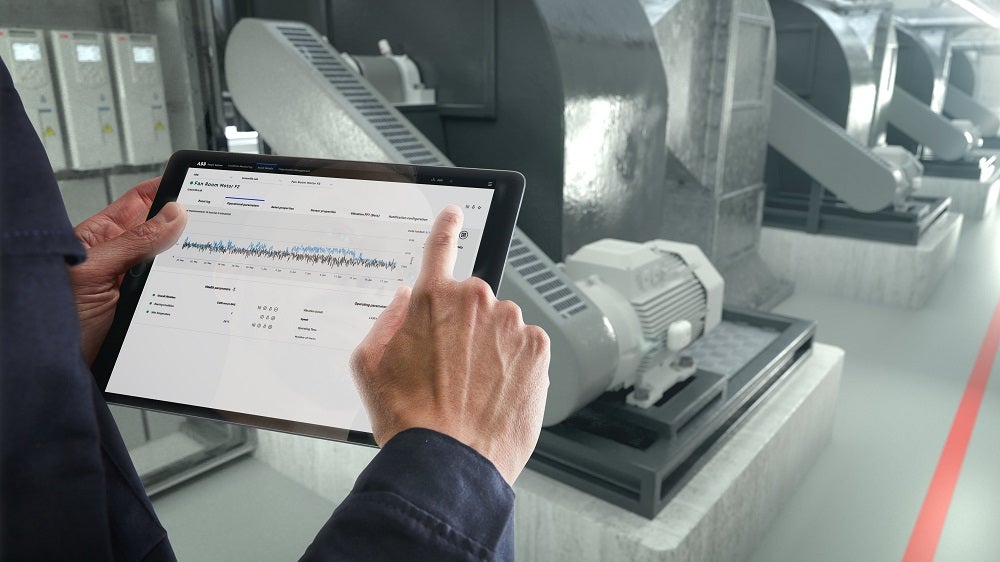
As the UK accelerates its climate ambitions ahead of next year’s COP26 climate summit, industry is preparing to make broad operational changes to adapt to the new demands of decarbonisation and energy efficiency. David Hughes, ABB’s UK managing director, explains why CEMARS accreditation – the internationally-recognised standard for emissions reduction – is a good place to start for businesses looking to transition to a low-carbon future.
In June 2019, the UK parliament committed the government to reducing net greenhouse gas (GHG) emissions in the UK by 100% relative to 1990 levels by 2050, making the country a “net-zero” emitter. Indeed, by 2030, UK businesses will need to show emissions reduced by at least 68%.
The clock is now ticking. Companies who previously have paid lip service to reducing their environmental footprint need to move from a position of an emissions policy being a “nice to have” to becoming a business imperative.
It is now incumbent upon all UK businesses – from multinationals to SMEs – to develop and put in place a clear strategy to eliminate carbon from their operations and supply chains by electrifying company car fleets, powering their operations from renewable energy sources, investing in more energy-efficient plants and equipment, and changing their business culture to use less resources.
It should also be obvious that putting corporate social responsibility at the top of the agenda makes sound business sense.
Energy efficiency equates to optimised production and reduced downtime for industry. Automating production lines facilitates predictive maintenance, leading to fewer costs and waste. Intelligent heating and lighting systems can significantly reduce operational expenditure (Opex).
Innovations such as these can also give UK businesses peace of mind that their CO2 reduction targets, and the methodologies they use to measure emissions, are of a high-enough standard to comply with legislation – such as the Certified Emissions Measurement and Reduction Scheme (CEMARS), one of the first internationally-accredited GHG certification initiatives under ISO 14064.
Energy efficiency in industry can power the low-carbon transition
Advancements in big data, as well as automated digital technologies such as the internet of things, the cloud, data analytics, visualisation and advanced modelling algorithms, can all help UK companies better manage energy consumption and waste, and make the transition to a low-carbon future.
This is reflected by the fact that, increasingly, process technology companies’ revenues are derived from innovations that directly address the causes of climate change by facilitating improved energy efficiency, the integration of renewables into the energy mix and conservation of natural resources.
For example, it is not unusual for an environmental audit carried out by an external consultancy to identify multiple opportunities that the customer didn’t even know existed. The payback period of any subsequent investment can be as little as six months; everything after that is money in the bank.

Take something as prosaic as an electric motor. Typically, 40% of all energy consumed in the UK is via such motors, many of them IE1–IE3 models. In fact, the energy consumed in the first month is typically equivalent to the purchase price.
The new generation of IE5 electric motors is comparatively priced against the IE3 and can offer up to 50% lower energy losses.
Part of the challenge in the UK is getting customers to look beyond a focus on purchase cost in favour of a more holistic view, where initial capital expenditure (Capex) is measured against both productivity and equipment downtime. We have a job to do to convince companies that getting three months of use from IE5 motor before the energy bill matches the initial outlay is simply good for business.
Intelligent heating and lighting
Intelligent heating and lighting solutions in offices, data centres and industrial facilities can enable owners, electrical installers, and facility and energy managers to connect with a facility’s automation system and acquire and visualise data – both on-site and remotely – to drive long-term efficiencies.
This equates to optimum energy consumption and allocation, continuous operations, and simplified maintenance. The benefits of connectivity and data availability can result in savings of up to 30%.
Similarly, cloud-based energy management and asset supervision solutions that monitor and analyse the flow of power in buildings and industrial sites are proven to reduce energy bills, simplify facilities management, and cut Opex by as much as 30%.
These innovations and others like them can also help businesses to monitor and control energy usage in separate offices – in Edinburgh, Cardiff and London, for example – from a single remote location.
Switch on to a low-carbon future
As a society, we have a responsibility to the next generation to leave them with a sustainable planet, and that means companies becoming smarter about how they consume energy and manage waste.
World-class standards such as CEMARS are to be welcomed. The process itself is a steep learning curve, one that involves granular data collection on everything from company car fleet use and business flights, to internal culture, and future initiatives around corporate social responsibility (CSR) and environmental excellence.
UK companies should strive to achieve CEMARS gold accreditation, and help other UK businesses to do the same.
There is also an opportunity for the UK to become a global centre of excellence in the nascent hydrogen market. UK equipment manufacturers must continue their sterling work internationally on this and other innovations that have the potential to help the country achieve net-zero emissions by 2050.






